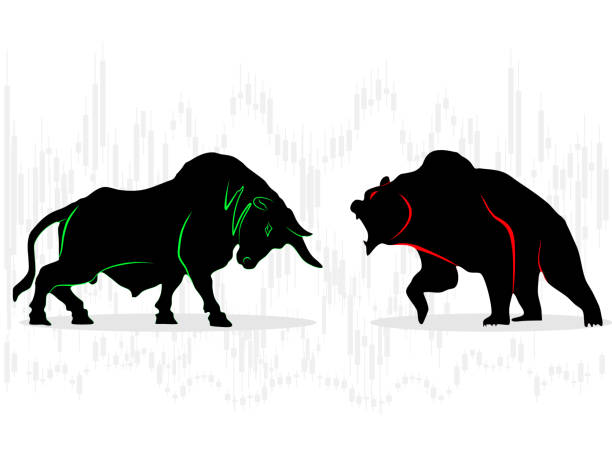NSE v/s BSE
Understanding the differences between the National Stock Exchange (NSE) and the Bombay Stock Exchange (BSE) is essential for investors looking to navigate the Indian equity markets effectively. Both exchanges play a pivotal role in the country’s financial ecosystem, but they differ in terms of size, market reach, and trading volumes. In this section, we provide a detailed comparison of NSE and BSE to help you make informed investment decisions.
Introduction to NSE and BSE
-
NSE (National Stock Exchange) : The NSE is India’s largest stock exchange by trading volume and market capitalization. Established in 1992, it introduced electronic trading to India, making stock trading more efficient and accessible. The NSE’s benchmark index, the Nifty 50, tracks the top 50 companies listed on the exchange.
-
Founded in 1992 : One of the newer stock exchanges in India, driving technological innovation.
-
Largest in Trading Volume : NSE has the highest trading volume in India, making it the preferred choice for institutional and retail traders.
-
Nifty 50 Index : Tracks the performance of the top 50 companies across various sectors, widely regarded as the market benchmark.
-
Advanced Trading Platform : Known for its cutting-edge technology and faster trade execution.
-
BSE (Bombay Stock Exchange) : The BSE, founded in 1875, is Asia’s oldest stock exchange and one of the largest in the world by market capitalization. It boasts a legacy of over a century and is known for its iconic benchmark index, the Sensex, which tracks the top 30 companies listed on the exchange.
-
Founded in 1875 : The oldest stock exchange in Asia with a rich history of over 145 years.
-
Sensex Index : Tracks the top 30 companies, widely recognized as an indicator of India’s economic performance.
-
Diverse Listings : Home to over 5,500 listed companies, offering a wide range of investment opportunities.
-
Legacy and Trust : Known for its strong regulatory framework and deep-rooted trust within the investor community.
Key Differences Between NSE and BSE
Trading Volume and Liquidity:
NSE :The NSE dominates in terms of trading volume and liquidity, making it easier for investors to buy and sell shares quickly. This higher liquidity leads to narrower bid-ask spreads, resulting in lower transaction costs.
BSE :While the BSE has a large number of listed companies, it generally sees lower trading volumes compared to the NSE. However, it is a preferred exchange for long-term investors who value its legacy and diverse listings.
Benchmark Indices:
NSE (Nifty 50) :The NSE’s Nifty 50 index tracks the performance of the top 50 companies, providing a broad view of the Indian economy across sectors. It is considered more representative of the market as it includes companies from various industries.
BSE (Sensex) :The BSE’s Sensex, on the other hand, tracks 30 of the largest and most stable companies in India. While narrower in scope than the Nifty 50, the Sensex is still a trusted indicator of market trends, particularly for blue-chip stocks.
Trading Platforms and Technology:
NSE :NSE is widely regarded for its state-of-the-art trading platform, offering high-speed trading and superior technology. It introduced automated trading in India and continues to be a leader in providing seamless trade execution.
BSE :While the BSE also has an advanced electronic trading platform (BOLT), it is perceived to be slightly slower compared to the NSE. However, it remains a strong competitor due to its deep market penetration and broader listings.
Listing Requirements:
NSE :The NSE has slightly stricter listing requirements than the BSE, particularly regarding market capitalization and profitability. Companies listed on the NSE tend to be more established and have met higher standards, which may provide an added layer of assurance to investors.
BSE :BSE’s listing requirements are less stringent, allowing a larger number of small and medium-sized enterprises (SMEs) to list. This results in a wider variety of investment opportunities, especially for investors interested in emerging companies.
Investment Opportunities on NSE vs BSE
SME Segment:
NSE :While the NSE also has an SME platform (NSE Emerge), it generally has fewer listed companies compared to the BSE. Investors looking for well-established SMEs may prefer the NSE for its stricter criteria.
BSE :BSE’s SME platform is one of the most popular in India, offering investors access to a broad range of emerging companies. It is particularly attractive for investors focused on early-stage investments in high-growth companies.
IPOs and Pre-IPOs:
NSE :The NSE is often the preferred platform for large and high-profile initial public offerings (IPOs) due to its higher liquidity and more extensive market reach. It provides a platform for well-established companies looking to raise capital through IPOs.
BSE :BSE is known for offering a broader array of smaller IPOs and pre-IPO opportunities, particularly for SMEs. Investors seeking to invest in smaller, high-potential companies at an early stage may find BSE more aligned with their strategies.

